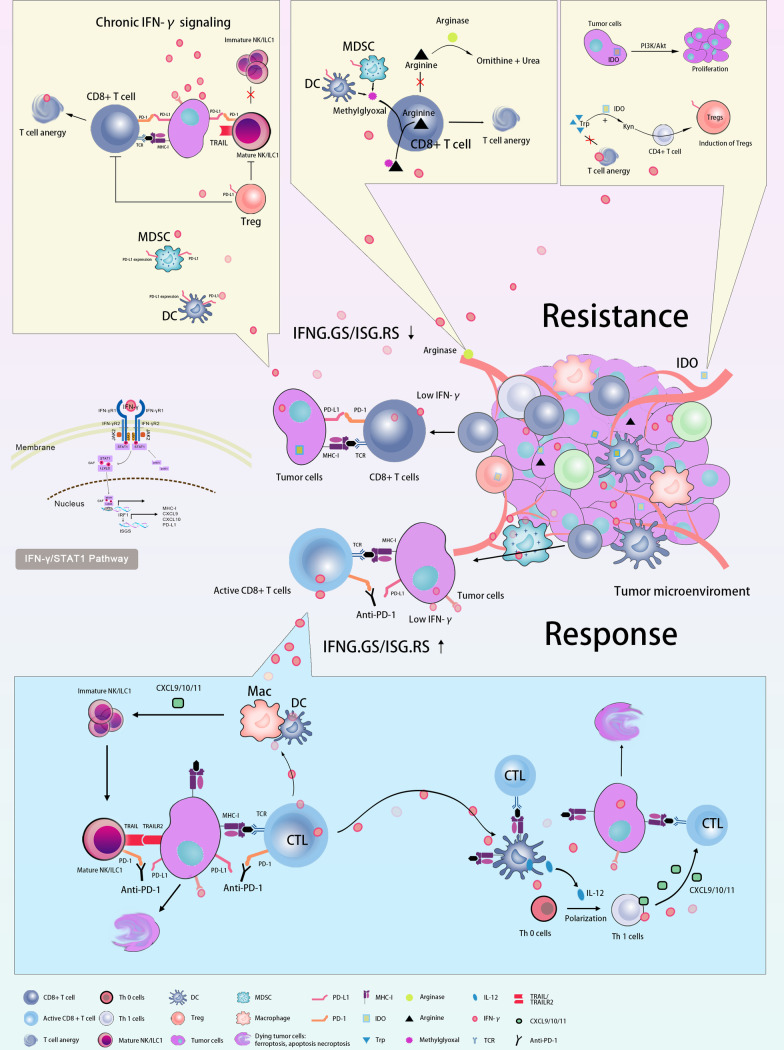Fig. 4.
Controversial roles of IFN-γ in the TME of CRC. Antitumor: IFN-γ signaling from immune cells and a high IFNG.GS/ISG.RS ratio were associated with increased CD8+ T cells and NK cell activation, and high response to ICB immunotherapy. IFN-γ can prompt CD8+ T cells and NK cells infiltration into TME, promote the MHC-I expression, boost Th1 cells polarization, directly induce tumor cells apoptosis or non-apoptotic death, establish tumor cells dormancy and inhibit tumor cells proliferation by IFN-γ/STAT1 pathway or non-STAT1 signaling; immune evasion: IFN-γ signaling released by tumor cells and a low IFNG.GS/ISG.RS ratio were associated with resistance to ICB treatment. IFN-γ can induce tumor antigen loss, recruit MDSC and TAMs into the TME, induce tumor immunoediting, and facilitate the expression of PD-L1, IDO, and arginase in TME

